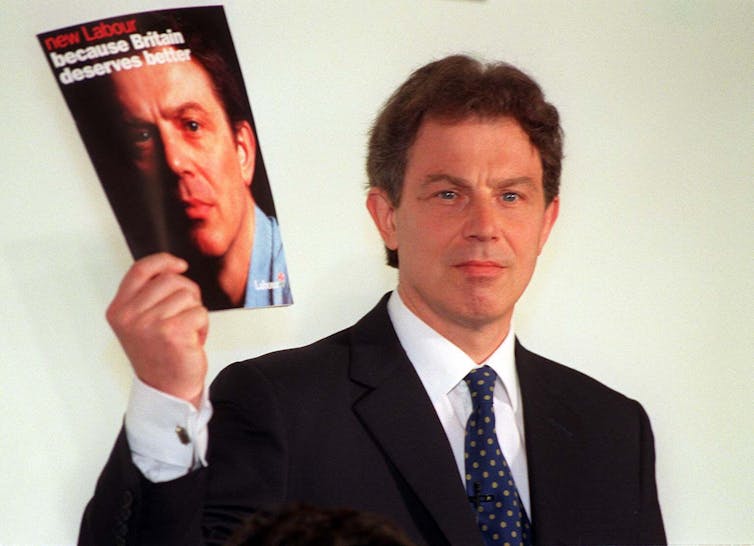The unveiling of party manifestos is a crucial moment in a British general election. These documents give parties an opportunity to lay out their core ideas and commitments to a sceptical electorate. They explain the party’s pledges and retail “offer” as part of a wider story to voters about where its leadership wishes to take the country.
If the aim is to “campaign in poetry and govern in prose”, the manifesto is a chance for leaders to articulate a compelling message of national renewal. The incumbent administration will argue it offers both a safe pair of hands and a plausible plan to further improve the nation. The manifesto will seek to convince voters why it is best to stick with the status quo.
For an insurgent opposition, the manifesto is where it articulates what in our national life needs to change. For the Liberal Democrats and the Greens, it is an opportunity to spell out their distinctive offer on issues the major parties may be ignoring.

Want more election coverage from The Conversation’s academic experts? Over the coming weeks, we’ll bring you informed analysis of developments in the campaign and we’ll fact check the claims being made.
Sign up for our new, weekly election newsletter, delivered every Friday throughout the campaign and beyond.
Manifestos are nascent governing strategies, laying out what that party would aim to achieve if it secures power. Labour’s five overarching missions (and six “first steps for change”) will be at the centre of this. The Conservatives will use their manifesto to demonstrate that their “plan is working”, while showcasing policies that they hope will disrupt the political conversation (for example, mandatory national service).
Authors of these manifestos must take exceptional care in how policy commitments are drafted. Proposals will be scrutinised line by line, not least by the opposition, to ascertain whether they are properly funded and workable. Theresa May courted disaster in 2017 by proposing a so-called dementia tax in the Conservative manifesto which triggered huge political backlash.
Manifestos also serve practical purposes, helping the governing party deliver its policies in office. Constitutional convention in British politics dictates that the House of Lords will not block proposals explicitly set out in that party’s manifesto.
If the election is close and there is negotiation over a coalition or “confidence and supply” arrangement, the manifesto is critical to intraparty bargaining. The Liberal Democrats found that to their cost after 2010 when they were unable to fulfil their core pledge to scrap university tuition fees in England. Despite that being a headline manifesto policy, their Conservative coalition partners were unwilling to make such an expensive commitment.
The problems with manifestos
There are, unquestionably, problems with manifestos and their implications for UK politics and policymaking.
First, manifesto pledges are inevitably disconnected from the realities of policy implementation. Some of the greatest policy failures in government stem from an “operational disconnect” between a small group of advisers at the centre and those responsible for delivering policy at the frontline.
This is a particular risk for opposition parties who must draft manifestos without the support of the government machinery and the civil service. That limits their ability to stress test ideas before entering government.
Tony Blair grew frustrated because the manifesto on which he was elected in 1997 was a successful campaigning document, yet offered little direction for governing, particularly in dealing with systemic problems in public services.

Another criticism is that manifestos contribute towards growing mistrust in liberal democracy. Almost inevitably, parties struggle to implement all of their promises. They are – much of the time at least – not being willingly dishonest.
Circumstances inevitably change. Crises and shocks (the pandemic and Russia’s invasion of Ukraine, for example) hinder government’s ability to deliver, not least in undermining the public finances and limiting room for manoeuvre on fiscal policy.
There is something contrived about parties producing detailed plans for a parliament that may well last five years, in a world that is volatile and uncertain.
Can manifestos be better?
There is a strong argument that manifestos should be much shorter documents that articulate a party’s worldview, rather than detailing every policy commitment. Labour’s 1945 manifesto was unusually brief (around 5,000 words to the more common 20,000 in 2019). Yet, the document was compelling in establishing a vision of postwar reconstruction founded on the ideals of “practical socialism” and state collectivism.
Similarly, the Conservative party manifesto in 1979 elaborated a broad vision of how to roll back the frontiers of the state to liberalise markets and “set the people free”. Both manifestos contained policy, but were significant, above all, because they established ideological direction.
We ought to consider fundamentally changing how manifestos are produced in UK politics. There should be sustained engagement with the civil service. This should not merely be through “access talks” between shadow ministers and permanent secretaries, but detailed work on policy, much of which does not need to appear in a manifesto. Officials should be seconded to the opposition well in advance of an election to support detailed preparations for government.
Moreover, parties should invest in direct contact with voters long before publishing their manifestos, including by convening citizens’ assembles. These discussions ought to involve an open conversation with voters about the difficult choices and trade-offs in policymaking and public spending that lie ahead. This would strengthen the legitimacy of the democratic process while ensuring a more engaged citizenry.

